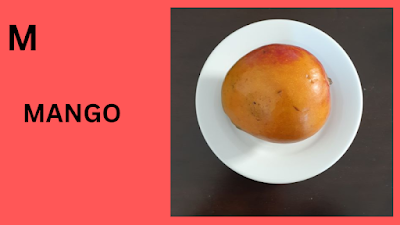Health Benefits of Mangoes
Health Benefits of Mangoes.
The post highlights the origin and popular cultivars of the versatile fruit mangoes and describes its nutritional contents and health benefits.
There are as many as one thousand varieties of mangoes, and at least three hundred of them are grown commercially worldwide. South Asia is considered home to this versatile fruit, and from this region, the 'common mango' or 'Indian mango' spread to the rest of the world. This is one of the most enormously cultivated fruits in the tropics.
Mango is the national fruit of India, Pakistan and the Philippines, and the national tree of Bangladesh. There are more than hundreds of cultivars of this fruit across the world. Their taste, size, colour, and texture vary depending on the cultivar types. Julie and Alphonso are popular Indian cultivars and Tomy Atkins of Southern Florida.
Mangoes have been planted in South Africa for a long time, and one such region is the Western Cape. The mango season begins here in November, peaks in January and February and extends to May.
Nutritious Values of Mangoes.
In addition to being delicious and juicy, mangoes are a source of various nutrients. Mangoes contain over twenty different vitamins and minerals, making them a superfood.
Mangoes are low in calories yet high in nutrients, vitamins, and minerals. How these nutrients are of help to maintaining your body metabolism in reducing health risks are explained in the health benefits described below.
Health Benefits of Eating Mangoes.
1. One cup of fresh mango (165 grams) provides nearly 67% of the daily value for vitamin C. This nutrition aids your immune system, helps your body absorb iron and promotes cell growth and repairs.
2. Low in Calories:
One cup of fresh mango contains fewer than 1oo calories. Thereby a significant source of help to reduce calorie intake while still feeling full and satisfied.
3. It May Help Prevent Diabetes.
Eating mangoes at a moderate level helps to reduce the risk of developing diabetes. Fresh mangoes contain less sugar than when dried.
4. High in Healthy Plant Compound.
Mangoes contain over a dozen polyphenols that can function as antibodies inside your body.
5. Contains Immune-boosting nutrients.
Mangoes are a reliable source of folates, several B vitamins, and vitamins A, C, K, and E, all dependable immune boosters.
6. Support Heart Health.
Magnesium, potassium, and antioxidants support healthy heart functioning.
7. It May Improve Digestive Health.
The digestive enzymes, water, dietary fibres and other components in mangoes may help various aspects of digestive health.
8. Eating Mangoes May Support Eye Health.
Vitamin A supports eye health, and its presence in mangoes may help to protect your eyes from the sun and help resolve eye issues.
9. Lower the risk of certain Cancers.
The antioxidants in mangoes may help prevent specific cancer attacks.
Conclusion.
The post highlights the origin and popular cultivars of the versatile fruit mangoes and describes its nutritional contents and health benefits.
Are you in the habit of enjoying the sweetness and juicy texture of this versatile fruit, mango? Which type do you like the best: Julie, Alphonso or Tomy Atkins?
This post is for the letter M in the series of my A2Z blog posts, lasting for the entire month and is part of the A2Z Blog chatter challenge. To read earlier posts, click on these letters. A B C D E F G H I J K L
*


I absolutely loved learning about the amazing health benefits of mangoes from your blog post! Your writing style is engaging and informative, and I appreciate the detailed information you provided about the various vitamins and antioxidants found in this delicious fruit. Keep up the fantastic work!
ReplyDeleteYou're a superblogger! As I appreciate you reading my posts and noting down its highlights with earnesty, I wounder how you get time for all these!
Delete